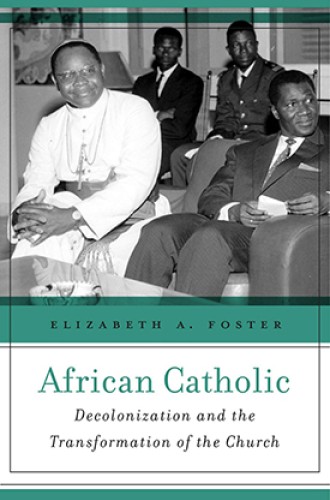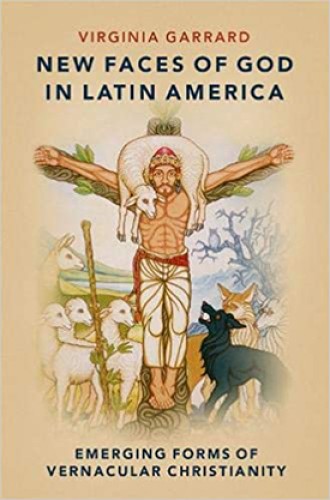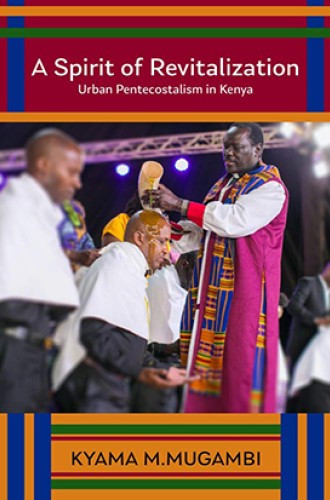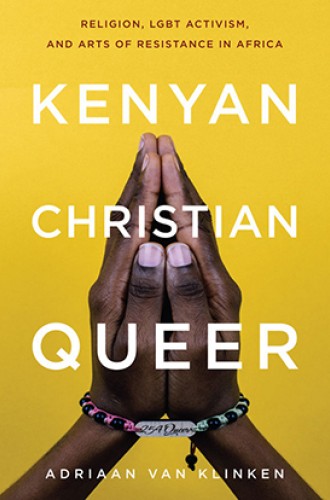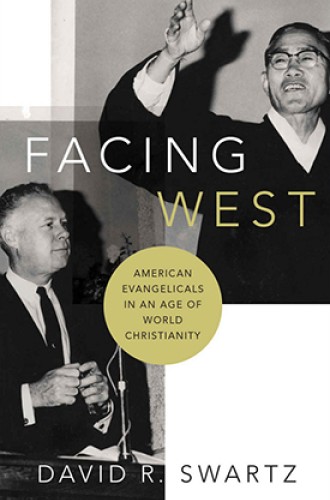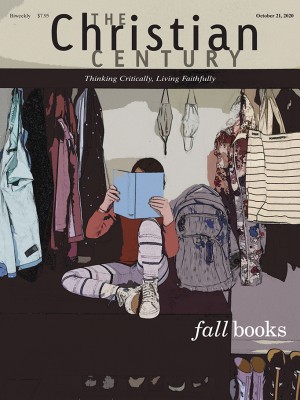Although Christianity’s mighty strides in modern Africa are well known, our standard picture is distorted by cultural and linguistic issues. When Americans think about Africa, they often focus on the English-speaking nations that once formed part of the British Empire, to the exclusion of the vast areas that were shaped by France, Belgium, Portugal, and others. The initial European Christian presence in those lands was Catholic rather than Protestant, and the later religious evolution differs greatly from the Anglican, Methodist, and Presbyterian strands that we know so well in Anglophone nations. It is very useful, then, to have Elizabeth A. Foster’s African Catholic: Decolonization and the Transformation of the Church (Harvard University Press).
Foster focuses on the Francophone Christians of West Africa’s French colonies, who were almost entirely Roman Catholic. In the great age of decolonization between the 1950s and 1970s, these Christians explored questions related to inculturation, race, faith, and liberation. How far could a new Catholic Christianity really free itself from White and imperial supremacy? Was “African Catholic” an oxymoron? These questions fed into the agendas of the Second Vatican Council.
Read our latest issue or browse back issues.
Foster’s account is all the more valuable because it draws attention to thinkers who were quite influential in the 1960s or 1970s but are still little known to nonspecialists. I for one had not even heard of Alioune Diop, a leading Senegalese exponent of negritude and a Catholic convert from Islam. For those who recall Archbishop Marcel Lefebvre as an arch-reactionary in the worldwide Catholic Church in the 1980s, it is fascinating to see him as a key interlocutor in those earlier West African debates.
Today Africa has 120 million French speakers, and many who are Christians have in recent years migrated to Europe, where their churches abound. It would be greedy to demand more of African Catholic than the author intends, and she makes no attempt to cover such critical Francophone Belgian territories as the Congo (now the Democratic Republic of the Congo). Even so, anyone reading her book will be cautious in the future about commenting on African Christianity without recalling Africa’s crucial linguistic divides.
The ways ordinary people understand and practice faith are often flatly contrary to what established churches and institutions specify. Virginia Garrard’s New Faces of God in Latin America: Emerging Forms of Vernacular Christianity (Oxford University Press) is a splendid, highly readable study of this phenomenon. Garrard explores a spectrum of beliefs and practices, from the definitely churched (Neo-Pentecostalism) through the more marginal and controversial (Santa Muerte and Mexico’s intriguingly named “off-label saints”) to more outré beliefs (witches and devils). The book benefits enormously from the author’s impressive linguistic skills and access to indigenous sources.
A recurring question in the book is where to draw the lines between inculturation, syncretism, and paganism. Garrard is well aware of the long history underlying her stories, some of which could as plausibly have come from the third-century Mediterranean as from contemporary Latin America. Critics of enthusiastic “spirit-filled” religion from Tertullian to Luther have questioned which kind of spirit might be involved at any given time. But for all the caveats we might raise, vernacular faith practices often show how ordinary believers define their worldview, and those ideas should never be underestimated.
Spirit-led movements are often very creative, and their innovations can lead to clashes with institutional systems. Kyama M. Mugambi offers a fine study of such movements in A Spirit of Revitalization: Urban Pentecostalism in Kenya (Baylor University Press, Studies in World Christianity series). Case studies of Global South churches are now commonplace, but Mugambi’s stands out for its deep historical perspective as he traces revivals and religious upsurges from 1920 to the present day.
Mugambi’s book is so rich and so broad in its coverage that another scholar might have been tempted to take the individual chapters and spin them off into freestanding monographs. He offers an excellent analysis of conditions in what has become the overwhelming metropolis of Nairobi, examining movements such as Christ Is the Answer Ministries and the Nairobi Chapel. Among other topics, he discusses Kenyan churches’ response to the country’s agonizing political crises, trends in theological education and leadership formation, and concepts of discipleship.
In the history of Global South Christianity—and especially in its Pentecostal wings—the only predictable constant is change. As ordinary believers respond to shifting social norms, they sometimes differ from institutional systems—including on questions of morality, gender, and sexuality. Global South churches often take the traditional view on these issues, so it is enlightening to discover that competing voices also exist. Adriaan van Klinken offers a valuable approach to these simmering debates in Kenyan, Christian, Queer: Religion, LGBT Activism, and Arts of Resistance in Africa (Penn State University Press), which offers another angle on the Kenyan situations so ably described by Mugambi.
While not denying that religious sentiments contribute to homophobia, Van Klinken shows how Christianity serves as a theater for lively debate on these issues, focusing on popular culture and artistic experiment. Western readers will be surprised at many of these expressions, including an affirming Kenyan church of the kind most would never suspect to exist in an African context. One of the book’s strengths is its close focus on the individual lives of activists and artists.
Van Klinken’s book resembles Foster’s in the way it describes debates about the essence of African identity and how far it can be reconciled with an ideology or belief system. This book’s great achievement is to subvert simplistic notions that LGBTQ issues represent a fundamental and insurmountable division between the religion of “the West” and of Africa. There are many Africas, and many Wests.
Similarly complex interactions appear in David R. Swartz’s Facing West: American Evangelicals in an Age of World Christianity (Oxford University Press). Swartz wisely provides snapshots of attitudes at critical moments, allowing readers to grasp the truly global nature of those conversations between American and non-Western believers. The book ranges from the expansion of Youth for Christ in 1945 through explosive controversies involving caste, communism, world peace, human trafficking, and (of course) sexuality. A chapter on Boston in 2045 addresses the impact of non-Western immigration on faith in America.
This long chronological sweep is what makes Facing West such a treasure. It is enlightening to observe the shift in balance between the American and non-Western worlds. Members of the latter initially appear as voices offstage and progressively move to the center of the action—arguably becoming the main plot.
It’s not easy for any group to deal with losing the central place in a narrative they’ve always believed they controlled. Do American evangelicals idealize the rising faces of global Christianity, or do they view them with fear and suspicion? The answer, of course, is both. Swartz supports his account through wide-ranging interviews, which make the book at least as much about non-Western Christians as about those American evangelicals. The book is truly global in giving full attention to the evangelical experience in Asia, Africa, and Latin America.


